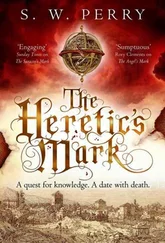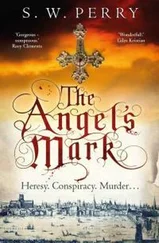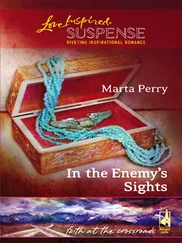De Lisle and al-Annuri come to him a few minutes later. The minister regards Nicholas with dark, astute eyes. Yet there is a hint of amusement in them, as though he’s been pleasantly disabused of a poor opinion. He delivers a fast burst of Arabic for de Lisle to translate.
‘In order to save time, His Excellency wishes you to confess that you are an English spy. Denial will not serve you well.’
A reprieve then, not an escape, thinks Nicholas as a fresh wave of fear courses through his body.
‘I’m not a spy, I’m just a physician. I was sent here to study physic,’ he says, knowing as he speaks how lame his denial sounds.
‘A physician who happens to be able to decipher coded dispatches,’ says de Lisle, even managing to capture some of al-Annuri’s scepticism. ‘Please don’t waste His Excellency’s time denying it, Dr Shelby. In your chamber at Sykes’s house, His Excellency’s men found a paper with certain letters written upon it. He believes it was used to unlock Sykes’s code. When he arrested al-Seddik at his dwelling late last night, he recovered Sykes’s full dispatch, with a copy of it made in plain English. He presumes that copy was deciphered by you. I read it myself. There were some errors, it is true, though far less than if al-Seddik had been responsible. In English, his hand is not as accomplished as his tongue; though before much longer he will have little need of either.’ A twinge of distaste puckers the Frenchman’s cheek. ‘What His Excellency would very much like to know is how you discovered the original, when the people of the traitor al-Seddik could not.’
Denial is pointless, Nicholas realizes. He looks frankly at al-Annuri as he answers. ‘It was luck, really. And the fact that both Sykes and his friend in London put their faith in the same talisman. Otherwise I might never have worked out where Sykes had hidden his letter. How did His Excellency know al-Seddik was plotting against the sultan, before he took possession of Sykes’s last dispatch?’
‘His Excellency has been suspicious of al-Seddik for a long time. But until now he had no evidence,’ the Frenchman says. ‘He, too, fought at the battle against the Portuguese and Spanish when His Majesty al-Mansur became sultan, and he has never trusted al-Seddik’s protestations of loyalty. Your actions have proved him right.’
Nicholas recalls with anguish Hadir’s words on the ride from Safi: Then al-Seddik comes on his knees to al-Mansur and begs forgiveness. His Majesty shows mercy, and now al-Seddik loves him like a brother…
He looks directly at al-Annuri and says, ‘Then His Excellency is a wise man. In England, Lord Burghley – our queen’s most trusted advisor – believed al-Seddik to be a friend. He even wrote a letter of fond remembrance. I handed it to al-Seddik myself.’
‘His Excellency regrets he was unable to protect you from such harsh handling, but once al-Seddik had chased away his watchers, it became more difficult. There are only so many times a man can walk down a street and observe a house before his presence is noticed. Otherwise we might have saved the lives of your household.’
The awful image of the scene in the garden on the Street of the Weavers tears into Nicholas’s mind. ‘If you have al-Seddik, I hope you have that murdering bastard Connell, too. Treat him as harshly as you care to – it will be no more than he deserves.’
De Lisle delivers his message. The reply is not what Nicholas cares to hear.
‘Connell was returning to al-Seddik’s mansion when he saw His Excellency’s men arrive–’
‘He escaped?’
‘He cannot long evade capture.’
‘What about al-Seddik’s janissaries? What will happen to them?’
‘Sultan al-Mansur’s men fell upon them this morning, at al-Seddik’s kasbah at Tahannout, in the mountains. Whether they took them all – well, the answer to that will have to wait upon some hard questioning.’
‘There are Englishmen amongst them, apprentices that Gault and Connell brought here,’ Nicholas says. ‘They must be freed; sent home.’
A quick stream of Arabic from al-Annuri. De Lisle translates.
‘His Excellency regrets that cannot be. They chose to become mercenaries in a rebellious cause. They will have to face the consequences of their actions.’
‘They were given little choice,’ Nicholas protests. He thinks of Hortop, the Kentish shepherd’s son. ‘They’re just ordinary lads from poor families. They were promised riches, a new life of plenty, an escape. They didn’t know what they were buying. To send them home would show my queen that her ally in the fight against Spain is a merciful man.’
‘His Excellency will consider it,’ says de Lisle when al-Annuri has digested what Nicholas has told him. ‘But he would like to hear from you how Minister Cecil learned of al-Seddik’s treachery.’
‘He didn’t. He simply became concerned when Adolfo Sykes stopped sending his dispatches. So he sent me here to find out what had happened to him. If that’s spying – given that it was Sir Robert’s only desire to protect both our realms – then yes, I’m a spy.’
Al-Annuri listens to de Lisle’s rendition of Nicholas’s words with a thoughtful frown. When he replies, Nicholas thinks he hears the name Solomon Mandel.
‘His Excellency wishes to know if you have word of his man in London,’ says de Lisle. ‘A Jew named Solomon Mandel.’
Nicholas raises his eyes to the ceiling, letting out his breath in a long, sad flow. ‘So you’re the Turk. Solomon Mandel was your man.’
This time al-Annuri has no need of a translator to understand the meaning of Nicholas’s words. The hawk’s gaze softens, even as the eyes dart from Nicholas to de Lisle and back again. The neatly trimmed black beard tightens against the jaw with self-recrimination.
‘He was murdered,’ Nicholas says brutally. ‘The conspirators in England thought that Sykes’s last dispatch had been sent to him, not to Robert Cecil. I’m sorry. Truly sorry.’
‘You knew him?’ asks al-Annuri.
‘I found him.’
Al-Annuri goes to the open window and stares out at the fountain, a contemplative frown on his angular face. He whispers something in the direction of the bougainvillea. To Nicholas, it sounds as though he’s making a pledge to a dead man. When he turns back into the room, the faint gleam of amusement in the Moor’s eyes has gone, replaced by a frightening intensity. His voice is as sharp as the jewelled dagger he carries. De Lisle catches the measure of it as he translates.
‘I know from my friend Solomon that I can trust Captain Yaxley of the Marion . He is still at Safi. You will return to England aboard his ship, Dr Shelby. And when you get there, you will do me a small service, in return for saving your life.’
‘Of course. Anything.’
‘You will find whoever killed my friend Solomon Mandel and erase their presence from this world. You will poison their wells and slaughter the livestock that feeds them. You will burn the sky above them. You will bring pestilence and death upon them, even unto the seventh generation. You will erase their names so that Allāh will forget he ever made them. Will you do that for me?’
Nicholas meet’s the Moor’s gaze without flinching. ‘Yes,’ he says, thinking of Solomon Mandel, of Hadir and his dreams of success, of grandmother Tiziri, of Gwata and his wide-eyed sister Lalla, who ran away when he smiled at her. ‘I will do it. No matter what it takes, I will deliver them justice. Inshā Allāh .’
Safi is a town that has fallen to an enemy it never knew it had, caught up in a war it had no idea was being waged. Everyone they pass prostrates themselves before Minister al-Annuri and offers what Nicholas takes to be heartfelt protestations of loyalty to Sultan al-Mansur.
Читать дальше












